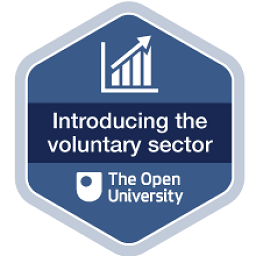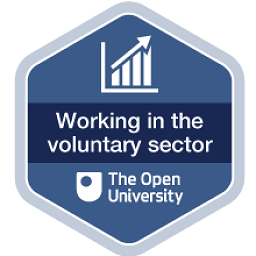Courses January to March 2023
Mar. 17th, 2023 03:47 pmI've followed a number of FutureLearn courses over the last eleven weeks, of various degrees of interest.
Country Houses and the British Empire (University of Leicester) The course showed how dependent those who had built and improved the country houses had been on the empire, both for artefacts and for the profits made from the slave trade. At the same time it also spoke of how important their role was in saving items which would have been lost to history otherwise, which left a slightly strange sense of Orwellian DoubleSpeak: Houses Good, Owners Bad.
Women in Arts (Centre Pompidou) The course highlighted the often neglected role of women in the visual arts, but at the same time a number of the units were simply links to other websites and, because the course was a couple of years old, many of the exhibitions quoted were no longer current.
How to Read a Film (Film Distributors' Association) I'm not a great film watcher, but found this course fascinating. It covers all the different ways particular shots are used, the editing process, various genres, music etc. There are some fun activities, as well as several clips which illustrate the ideas and help to think through the subject. For anyone interested in films I would recommend the course.
Sino-Japanese Interactions Through Rare Books (Keio University) Another interesting course, showing how Chinese books were taken across to Japan and then translated and printed there. I appreciated the opportunity to gain insight into the culture of the periods covered.
Protect the Protest: Using Our Rights to Freedom of Assembly and Expression (Amnesty International UK) Topical and practical. A short and very information course.
The Korean Alphabet: An Introduction to Hangeul (Songkyunkwan University) I knew nothing about Hangeul and how it came to be created, so this was worth following, although I don't see myself doing anything with it.
The History and Culture of Chinese Silk (University of the Creative Arts) Sadly, although I was interested in the subject, the presentation was poor and I suspect I could have found out as much by a quick google search. The silks shown were beautiful but the only commentary was the period they were made in and how they conformed to that period.
In addition I've taken two badged Open Learn (free Open University) courses, both of which related to my volunteering roles and therefore have some relevance and were worth following.


Country Houses and the British Empire (University of Leicester) The course showed how dependent those who had built and improved the country houses had been on the empire, both for artefacts and for the profits made from the slave trade. At the same time it also spoke of how important their role was in saving items which would have been lost to history otherwise, which left a slightly strange sense of Orwellian DoubleSpeak: Houses Good, Owners Bad.
Women in Arts (Centre Pompidou) The course highlighted the often neglected role of women in the visual arts, but at the same time a number of the units were simply links to other websites and, because the course was a couple of years old, many of the exhibitions quoted were no longer current.
How to Read a Film (Film Distributors' Association) I'm not a great film watcher, but found this course fascinating. It covers all the different ways particular shots are used, the editing process, various genres, music etc. There are some fun activities, as well as several clips which illustrate the ideas and help to think through the subject. For anyone interested in films I would recommend the course.
Sino-Japanese Interactions Through Rare Books (Keio University) Another interesting course, showing how Chinese books were taken across to Japan and then translated and printed there. I appreciated the opportunity to gain insight into the culture of the periods covered.
Protect the Protest: Using Our Rights to Freedom of Assembly and Expression (Amnesty International UK) Topical and practical. A short and very information course.
The Korean Alphabet: An Introduction to Hangeul (Songkyunkwan University) I knew nothing about Hangeul and how it came to be created, so this was worth following, although I don't see myself doing anything with it.
The History and Culture of Chinese Silk (University of the Creative Arts) Sadly, although I was interested in the subject, the presentation was poor and I suspect I could have found out as much by a quick google search. The silks shown were beautiful but the only commentary was the period they were made in and how they conformed to that period.
In addition I've taken two badged Open Learn (free Open University) courses, both of which related to my volunteering roles and therefore have some relevance and were worth following.


no subject
Date: 2023-03-17 06:20 pm (UTC)no subject
Date: 2023-03-17 06:24 pm (UTC)no subject
Date: 2023-03-17 06:34 pm (UTC)no subject
Date: 2023-03-17 06:41 pm (UTC)no subject
Date: 2023-03-17 07:14 pm (UTC)no subject
Date: 2023-03-17 07:51 pm (UTC)no subject
Date: 2023-03-18 02:00 am (UTC)no subject
Date: 2023-03-18 09:07 am (UTC)no subject
Date: 2023-03-18 02:29 am (UTC)Also so many people say hangeul is super easy to learn. "You can learn it in a day!" It took me much longer than a day. Its history and creation is pretty fascinating to me. Knowing how some of the vowel letters work helps me with my pronunciation when I'm doing badly.
no subject
Date: 2023-03-18 09:12 am (UTC)I can see why Hangeul should be easy to learn but I'm sure it takes more than a day to really be confident with it, rather than having a basic idea.